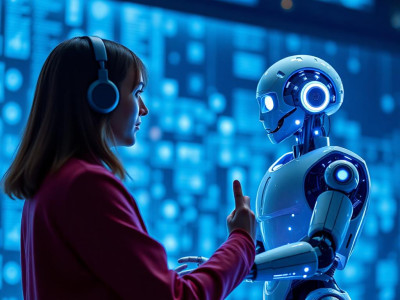Many conversations have been spurred by artificial intelligence (AI), some of which are based on truth and others of which border on science fiction. Let's examine the myths and realities related to artificial intelligence's impact on people.
Myth 1: AI Will Make People Its Slaves
Reality: As it is In dystopian literature, the concept of AI enslaving humans is a common motif. But present AI systems lack the broad intellect and autonomy needed to rule or subjugate people; instead, they are built to do specialized jobs. AI functions within the parameters set by its programming and human supervision.
Myth 2: All Jobs Will Be Automated
Reality: Automation and AI have the potential to replace certain professions, but they also open up new career prospects. In the past, technical developments have changed the nature of the Labor market while simultaneously spawning whole new sectors and job categories. Retraining the workforce to adjust to these changes is the difficult part.
Myth 3: AI Is Capable of Completely Outthinking Humans
Reality: Particular jobs that AI excels at include data processing, pattern recognition, and repetitive operations. It does not, however, have human creativity, emotional intelligence, general cognitive ability, or contextual awareness. Artificial Intelligence is a tool, not a substitute for human talents.
Myth 4: AI Will Develop Sensitivity
Reality: Current AI is devoid of self-awareness, consciousness, and subjective experience all necessary elements of consciousness. AI systems lack consciousness and comprehension; instead, they function purely on data and algorithms. If at all feasible, real AI sentience will be well beyond our current state of technology and comprehension.
Myth 5: AI Is Objective and Biased
Reality: Biases in the algorithms or training data can be passed down to AI systems. These prejudices may produce unfair or discriminating results. It is a constant effort to ensure AI accountability and justice, requiring careful design, a variety of data sources, and constant monitoring.
Conclusion
AI isn't taking possession of humans; it is drastically changing a lot of elements of our existence. Misunderstandings and exaggerations are frequently the source of the myths and anxieties. AI's future depends on how responsibly it is developed and applied, making sure it works best for humans.



Comments